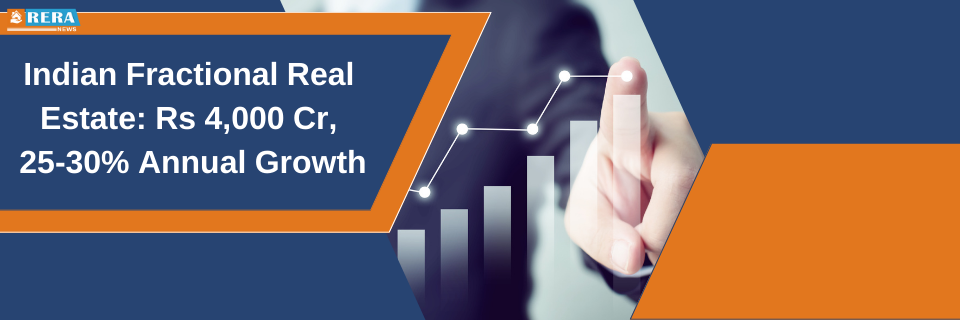
Fractional ownership of real estate is gaining ground in India, with assets under management reaching Rs 4,000 crore, according to a report by TruBoard Partners, a tech-enabled real asset management company. Numerous private firms have established fractional ownership platforms, allowing investors to own a portion of real estate assets. This model reduces capital requirements and broadens participation in real estate asset ownership.
Investors commit funds to securities issued by a Special Purpose Vehicle (SPV) created by the fractional ownership platform, offering a structured channel for pooling money and jointly owning real estate.
While fractional ownership of real estate is in its early stages in India, it is expected to grow, thanks to tech-driven platforms, said Sangram Baviskar, MD of Real Estate Practice at TruBoard Partners. The total asset under management (AUM) in the fractional ownership market in India has surged from Rs 1,500 crore in 2019 to Rs 4,000 crore in 2023. TruBoard Partners anticipates a 25-30% compounded annual growth rate (CAGR) in the AUM of the fractional ownership market over the next 4-5 years.
Shravan Gupta, Founder and CEO of YOURS, a Bengaluru-based fractional ownership platform for holiday homes, noted the growing interest in fractional ownership, especially in luxury real estate. Investors and lifestyle enthusiasts are increasingly drawn to this investment option, making it more accessible as an asset class.
Regarding regulations, Gupta expressed confidence that fractional ownership of real estate would come under SEBI's purview and gain further traction. The proposed SEBI regulations aim to enhance transparency and integrity within the fractional ownership platform landscape. These proposals suggest that such platforms should register as Micro Small and Medium (MSM) REITs, with sponsors having a minimum net worth of Rs 20 crore to ensure active involvement. Additionally, SEBI's draft guidelines mandate that units of MSM REITs must be listed on stock exchanges.
The report also highlighted SEBI's proposal that the asset size for acquisitions should fall within the range of Rs 25 crore to Rs 499 crore, with at least 95% of the AUM in completed, revenue-generating real estate.
© 2023 Rera News. All rights reserved.